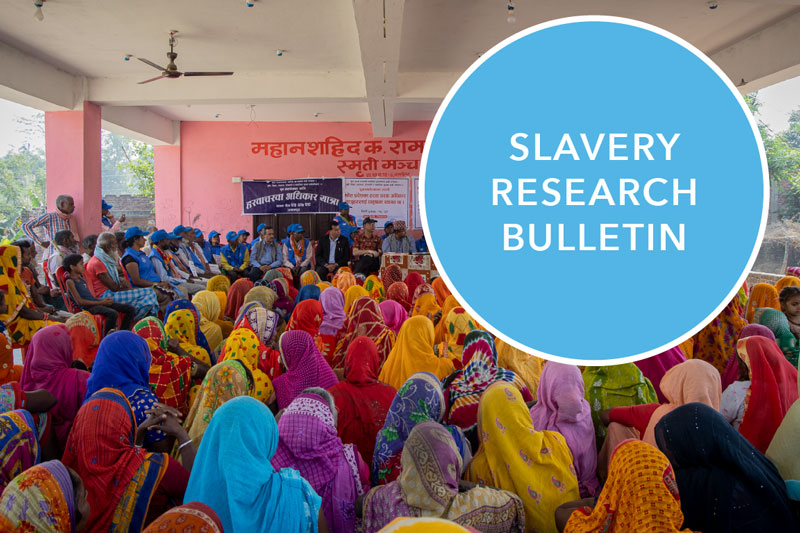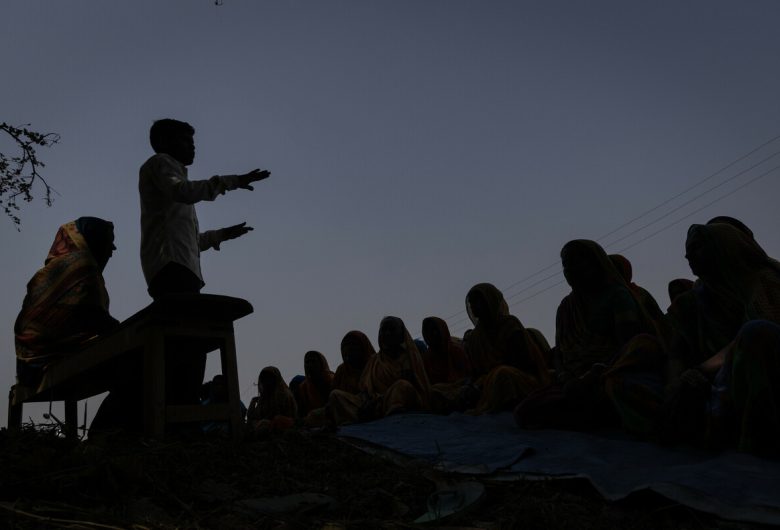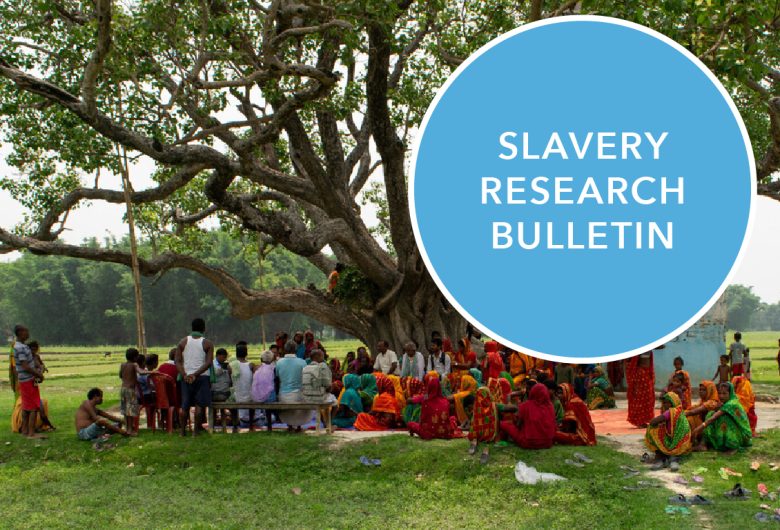Welcome to the Freedom Fund’s monthly bulletin designed to bring you new and compelling research from the global anti-slavery movement.
The U.S. Department of Labor reports on gaps in global efforts to abolish child labour
The U.S. Department of Labor publishes its annual Findings on the Worst Forms of Child Labor, covering 131 countries. The findings reveal that 90 percent of the countries failed to meet international standards. Specifically, 39 countries inadequately prohibit the involvement of children in illicit activities, 29 lack minimum age protections in the informal sector, 25 lack laws against child trafficking, and 17 inadequately prohibit forced labour. Eritrea, Myanmar and South Sudan were placed in the “no advancement” category due to the use of child labour in public projects, conflict zones and armed combats respectively.
Shifting norms and treatments towards child domestic workers in Ethiopia
An independent evaluation by Altai and SART Consult assesses the impact of a norms and behaviour change campaign, targeting employers of child domestic workers (CDWs) in Addis Ababa. The intervention, funded by the Freedom Fund and implemented by Girl Effect, focused on two main outcomes: reducing CDW’s working hours and increasing their access to education. Based on a random sample of over 700 employers, the study finds that those exposed to the campaign were more likely to grant CDWs time off for weekly rest days and public holidays. However, there is no detected impact on the rate of CDWs’ school enrolment. The research highlights TV and social media as key platforms for campaigns.
Half a million Filipino children involved in producing sexual exploitation materials
International Justice Mission (IJM) and the University of Nottingham Rights Lab collaborate on a study to measure the scale of child sexual exploitation materials (CSEM) in the Philippines. Using the network scale-up method, as well as data gathered from 3,600 household surveys plus focus group discussions involving survivor leaders, the study estimates that in 2022, 471,416 Filipino children (roughly one-in-100) were involved in producing CSEM for global sale. The study reveals that roughly 3 in every 1,000 adult Filipinos, were financially motivated to exploit children in CSEM production.
Causes of child labour and education exclusion among indigenous children
The International Labour Organization analyses child labour and education exclusion among indigenous children through a desk review, drawing on official data from six Latin American countries and focus group discussions with indigenous organisations in five other states. Rates of out-of-school children are typically higher among indigenous populations, and more than twice as high in countries such as Brazil, Guatemala and Panama. The lack of bilingual education is cited as a major factor, indigenous children often fall behind when not taught in their native language and are more likely to drop out of school to begin working.
The effect of COVID-19 on sex trafficking of marginalised communities in the United States
Researchers from the University of Michigan examine the pandemic’s impact on sex work and sex trafficking in the United States by analysing over one million advertisements on an online platform for sexual services. Through content analysis, the study ‘flags’ 369,280 ads as having a high potential for involving sex trafficking. After lockdown measures were relaxed, these ‘flagged’ ads resumed at a much quicker rate than the general number of ads for sexual services, supporting the notion that victims of sex trafficking were forced to return to work more quickly than their peers in sex work.
Read on
Walk Free and AllianceBernstein highlight the links between climate change, modern slavery and risks to businesses, and offer tools to guide investor decisions.
Researchers from the University of Liverpool investigate how managers from three large UK firms understand and respond to modern slavery risks in their construction business.
A paper by Rhodes University argues that ending child trafficking in the African region will require more than just expanding law enforcement mechanisms. A greater emphasis on shifting societal attitudes toward violence against children is also needed.
Freedom Fund news
The Freedom Fund announced a new round of grants to survivor-led organisations in Cambodia, the Philippines, and Thailand. Apply by 31 October 2023.
Visit our Newsroom for more updates.
Research library
Visit our Slavery Research Library to access anti-slavery resources from across the globe.
Contact
The Slavery Research Bulletin is produced monthly by the Freedom Fund, a global fund with the sole aim of helping end modern slavery.
Research being featured in this bulletin does not equal endorsement by the Freedom Fund.
Click here to sign up to the Slavery Research Bulletin mailing list.
Photo credit: Filmatory Nepal/The Freedom Fund



